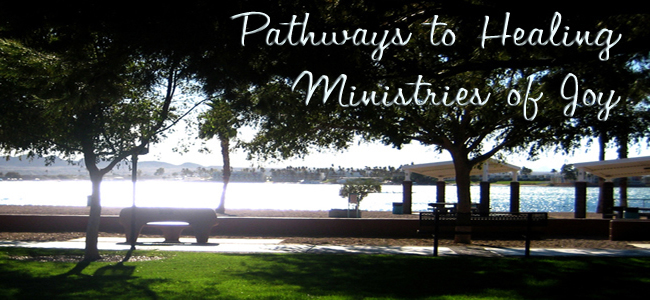By Joy Le Page Smith, M.A., BCC
www.healinglifespain.com
While attempting to learn more about prayer, I have made a concerted effort to draw from others their perceptions of prayer. I am receiving three types of comments: 1) those claiming prayer to be a challenging, yet rewarding experience; 2) those stating prayer to be too intimate a subject for discussing with others; and 3) those indicating frustrations accompany prayer.
The last two categories seem most prevalent. Two women whom I know well, felt free to tell exactly how they felt about prayer. “I’m afraid to give more of myself to God in prayer,” the first friend said. “He might ask me to do something I’m not ready to do.”
The second friend said, “God doesn’t answer my prayers. So why should I pray?”
Apparently a significant number of people are frustrated with prayer. According to a Barna Research report “over 73% of people say when their prayers seem to be unanswered, the most important reason is because they did not fit God’s plan.
Stop for a moment and let this simple word “prayer” roll over the ridges of your mind. Does it trigger any feelings? Perhaps only positive, peaceful thoughts surface. If so, I admire you. Personally, there were years when prayer presented a dichotomy. On the one hand it brought hope, strength, peace and an awareness of being loved. But on the other hand the mere thought of the word could bring uncertainty, guilt, anger and even fear.
Frustration came with feeling like a simpleton when trying to express myself to a holy, awesome God. It was also frustrating to attempt stilling an active mind—one so undisciplined that in a split second it could be off playing “hop-scotch” with future plans or memories.
Guilt came when I didn’t take time for prayer. Back when the children were still at home, days started like a shot out of a cannon and moved swiftly forward before landing with a thud on my pillow 16-20 hours later. I made good resolutions then felt guilt when I couldn’t keep them.
Inner angst came at the thought of communicating with God at times when I was derailed by mistakes or needled with imperfections.
There was anger in thinking God had failed to hear my prayers. I slammed shut my window to heaven. I recall asking once, “Can’t You do something about the state of things as they are?” Upon truly listening, I heard, “There is something you can do.”
Perhaps that is another reason why prayer can feel frustrating. God often offers challenges, and He has been known to require sacrifice. My first inclination is to escape sacrificing. Yet, on those occasions when obedience rules, indescribable joy follows. A joy that can only come in knowing that a sin-prone human heart has linked for a moment with a holy, limitless, loving God.
Prayer is the pathway to peace. We grow in our ability to savor prayer, knowing the greatest amount of truth about God always lies ahead in our experience of Him. Books written by the “church fathers,” the pioneers of prayer, underscore this. The treasures of truth open up through reading Holy Writ and fellowshipping with other believers, who care and encourage us.
In time, I learned God is the Lover of my soul—mighty and caring. The trust factor escalated, putting “why questions” to rest.
As with the finding of any treasure, there is a price to be paid. A healthy, ongoing relationship with God takes talking with Him day-by-day, drawing on His strength. It is prayer that encourages our souls to make sacrifices and to resist temptations. Through prayer the Holy Spirit nourishes, enriches and transforms us. Wisdom is imparted to our souls as we develop a prayer life that is significant and rich.
The mind will always fight the discipline of being quiet, waiting and giving up control. But on those occasions when the will yields, the soul takes flight like a homing pigeon and finds itself at home in the heart of Father God.
Prayer takes many forms. It entails communicating our needs and desires; it is praise and thanksgiving; it is intercessions for others; it is often seen in actions; it is that wondrous mystery of contemplation and meditation as we read Scripture. The best of prayer is when we speak spontaneously to God from the heart.
For sure, prayer is restorative and restful. Prayer resolves much pain as we release our fears. Philippians 4:6, shows prayer to be the cure for worry and anxiety. Prayer resolves much pain as we persist in releasing our fears.
Practicing prayer finds us knowing this truth, “all things work together for good to those who love God, to those who are called according to His purposes,” (Romans 8:28).


Another good one. Thank you Joy. Kindest regards & Semper Fi, Russ Mascari